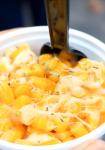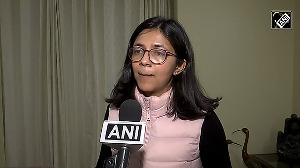Gunmen had fired on Musharraf's aircraft using an old anti-aircraft gun after it took off from Chaklala military base on July 6 in Rawalpindi, a garrison city adjoining Islamabad, to visit flood-affected areas in Balochistan.
The army had earlier denied Musharraf's plane was the target.
"The suspects are being questioned," army spokesman Major General Waheed Arshad said.
"I can not give any details about their identity and other details as the investigation are continuing. More details would be given after the investigations are completed," Arshad told a state-run television channel.
But the deputy cleric of the Lal Masjid, Abdul Rashid Ghazi who was subsequently killed in the military operation against Lal Masjid, had claimed before his death that those fired on Musharraf's plane spoke to him over the phone and acknowledged their failed attempt.
Security forces had recovered the anti-aircraft gun and a wooden tripod from the roof of a house in Rawalpindi.
According to a report in a local Daily Times, intelligence agencies have detained 39 people in connection with the July 6 attempt and transferred them to an undisclosed location.
Quoting intelligence sources, the daily reported that the suspected attackers' telephone calls had been traced to the detainees and added that most of them belonged to the North West Frontier Province.
In October 2006, security forces found rockets aimed at Musharraf's official residence in Islamabad while an explosion occurred near his army house in Rawalpindi.
A suicide attack also targeted Musharraf's motorcade on December 25th 2003 in Rawalpindi that left 14 people dead. The General had escaped unscathed.
Two weeks before that, he had survived another assassination attempt when attackers blew up a bridge as his motorcade passed.
Geo TV earlier reported that the arrested men belong to a banned extremist group.





 © 2025
© 2025